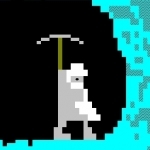
Offline Pages Pro
Business and Productivity
App
Offline Pages Pro is the world’s most advanced offline browser. Download entire websites with all...

Vehicle Log Book GPS PRO
Business and Finance
App
Vehicle Log Book PRO is your ultimate vehicle travel TAX companion for business or private use -...

Ultimate Dinosaur Simulator
Games and Entertainment
App
Discover a long lost prehistoric world and rule over it as an all mighty Dinosaur! Travel back to a...

Dwarf Fotress
Video Game Watch
Dwarf Fortress is a single-player fantasy game. You can control a dwarven outpost or an adventurer...

eCooltra scooter sharing
Travel and Lifestyle
App
How do you move around your city? Do you take your car every day and spend hours in traffic jams or...

Montessori Preschool
Education and Games
App
Looking for an engaging digital preschool app based on a proven teaching method? Montessori...

Ultimate Shark Simulator
Games and Entertainment
App
Dive into the deep blue sea and rule over the ocean as a real Shark! For the first time ever, choose...

Ultimate Fox Simulator
Games and Entertainment
App
Dash into a brand new adventure as a wild Fox! For the first time ever, choose from THREE PLAYABLE...

Fiete Puzzle - Kids Games with Animals
Education and Games
App
The game Fiete Puzzle lets children discover cute animated animals in beautiful picture book...

INSTALL SOLAR POWER: Solar Energy Without any Upfront Costs
Book
Solar Power Is Always “On” This book is written for people who want to save on ENERGY....
Self-Help Home Improvement Reference